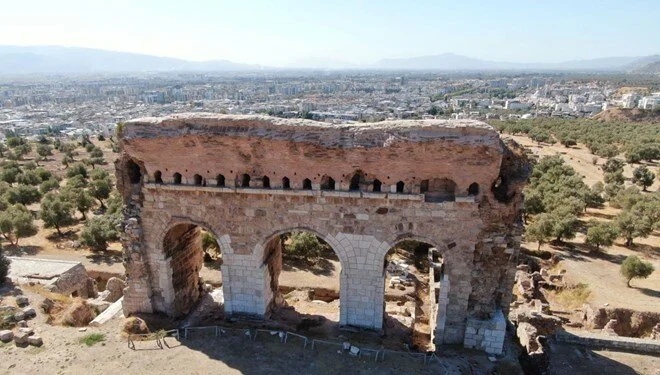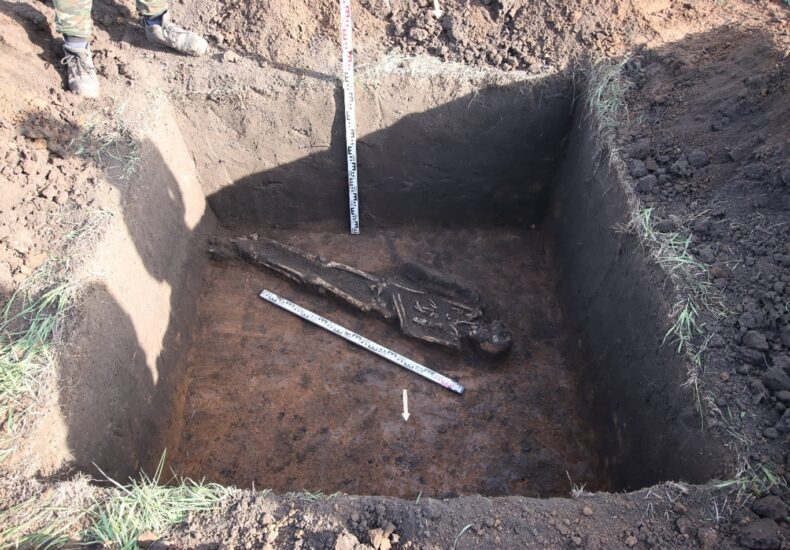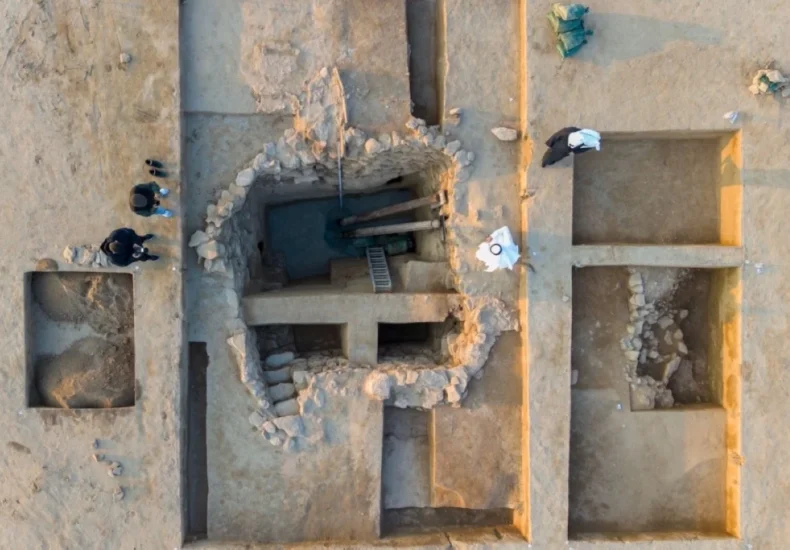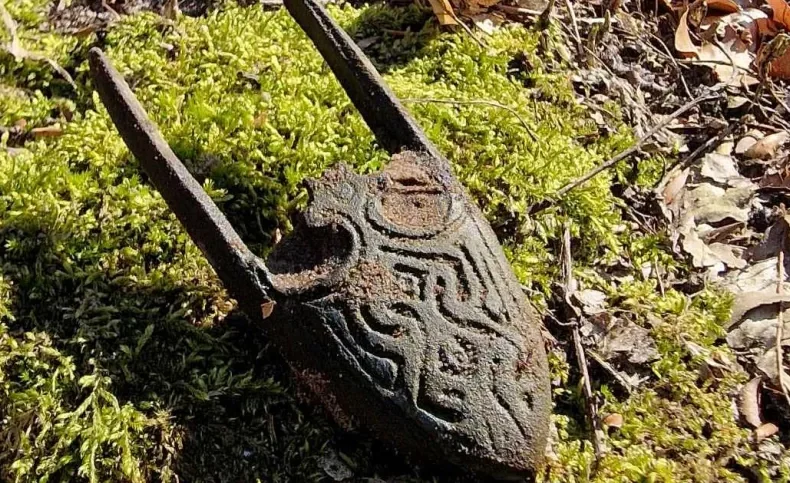
Mosaic Claimed to Date Back to the Time of Jesus Discovered in İznik: Historical Excitement Ahead of Pope Leo XIV’s Visit
During foundation excavations in a house in İznik, Bursa, mosaics believed to date back to the time of Jesus Christ were uncovered. This discovery coincides with the recent announcement of Pope Leo XIV, the newly elected leader of the Catholic world, planning a visit to İznik, creating a historic coincidence. The mosaics, found in İznik’s

Spearhead Believed to Be Poseidon’s, Possibly Roman, Unearthed in Lake İznik
In the early hours of the morning, Osman Erim and his friends cast their nets into Lake İznik to catch silverside fish. While retrieving the nets, Erim noticed an unusual, metallic object entangled among the fish. Suspecting it might be of historical value, he contacted the local museum without hesitation. “While pulling up the nets,

Figures Defying Time and Man: Nemrut’s Camels Are Disappearing
Located in the Tatvan district of Bitlis, the unique rock formations known locally as “Nemrut’s camels” are rapidly facing extinction due to both natural erosion and human-induced damage. These volcanic stones, formed after eruptions from Mount Nemrut, gradually took on shapes resembling animals and human figures, becoming part of local legends and folklore. According to

Ancient City of Tralleis to Open to Visitors in July 2025
The ancient city of Tralleis, considered one of the first settlements of Aydın and having hosted numerous civilizations throughout its history, is preparing to open its doors to visitors in July 2025, with ongoing excavation works and completed projects. Located in the Efeler district of Aydın and believed to be one of the region’s earliest

Tlos Ancient Theatre Prepares to Take the Stage Again After Centuries
Restoration work is nearing completion at the theatre of Tlos Ancient City, one of the oldest settlements in the Lycian Region. The theatre, which can comfortably seat approximately 8,500 people, will reopen its doors to art lovers after centuries. Located in the Seydikemer district of Muğla, Tlos is recorded as Dlawa in 14th century BC

Mancılık Church, Once a Local “Central Bank,” Plundered by Treasure Hunters, Awaits Restoration
The Mancılık Church, located in the village of Mancılık in the Kangal district of Sivas, and whose history is unknown, has become a target for treasure hunters. The historical structure, which has been plundered by treasure hunters for years, is awaiting restoration to be brought into tourism. According to the villagers, the church once served

A 3.5-Year-Old Girl Discovers 3,800-Year-Old Scarab Amulet in Israel
Little Ziv Nitzan, from Moshav Ramot Meir, might have just started her archaeology career after finding a 3,800-year-old amulet with an ancient Canaanite seal during a family trip to Tel Azeka, near Beit Shemesh. “We were walking along the path, and then Ziv bent down – and out of all the stones around her, she

Archaeological Complex of the Golden Horde Period unearthed in Tatarstan
During historical and cultural studies conducted in the Alekseevski municipal district of Tatarstan, an archaeological complex consisting of two burial grounds and a settlement from the Bulgar-Golden Horde period was discovered. This complex, comprising “Sakon Cemetery I,” “Sakon Cemetery II,” and “Sakonskoye Settlement IV,” offers a glimpse into the lives and burial practices of medieval

Historical Discovery on Failaka Island: 1400-Year-Old Water Well and Precious Stones Unearthed
Failaka Island has once again proven its significance on the stage of history with recent archaeological excavations. The discovery announced by the Kuwait National Council for Culture, Arts, and Letters (NCCAL) includes a large water well found in the courtyard of a magnificent house dating back to the 7th and 8th centuries AD in the

